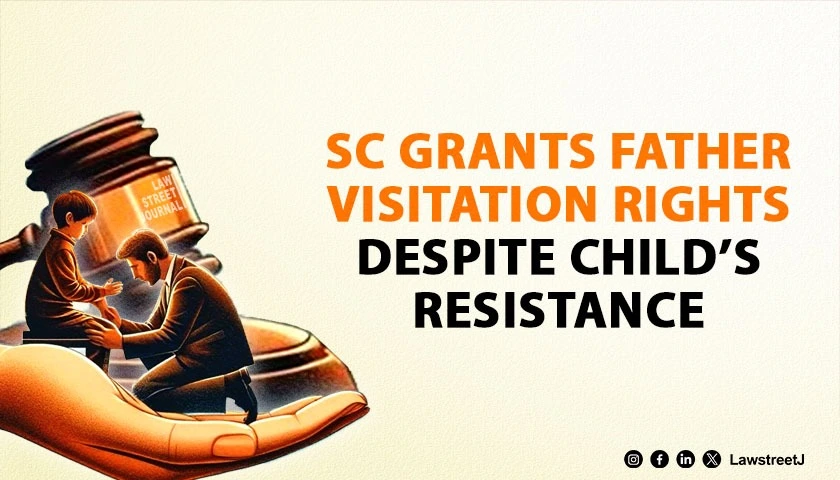NEW DELHI: The Supreme Court has asked the courts to be extremely careful in taking a considered view in a child custody matter as it is related to a human problem and needs to be resolved with human touch.
The top court allowed a man to meet his son, disregarding the minor's resistance to be in company of his father.
SC Grants Father Visitation Rights Despite Child’s Resistance
A bench of Justices Sudhanshu Dhulia and Ahsanuddin Amanullah granted the visitation right with his son, born in 2014, even though the child claimed he was disturbed by the visits to his father and does not want to continue with it.
The bench said the issue is related to the life of a minor child who has still not attained maturity himself and is not in a position to decide what is best for him.
Thus, the responsibility for him is also on the court which is seized of the matter, the court said.
Child Custody Requires Human Touch, Says Supreme Court
"The court has to be extremely careful in taking a considered view, such that the interests of the minor child are adequately safeguarded," the bench said.
The issue stemmed from the High Court's order which asked the family court to decide afresh the issue related to visitation rights of the appellant father, who was granted divorce by mutual consent with his wife after nine years of marriage. The child was to stay with the mother as part of the divorce decree and the father was granted visitation rights.
After the child's mother failed comply with the direction with the passage of time, the man approached the family court which allowed his execution petition.
This order was however overturned by the High Court upon the mother's plea.
The man contended the High Court ought to have considered that a minor child requires the love and affection of both the parents. Mere fact of divorce should not mean that the child is deprived of being taken care of by both parents.
He claimed it is only due to the tutoring that he later started showing animosity towards him.
The counsel for the mother, however, claimed that the child was unhappy with the appellant for not spending enough time with him during the visitations.
After the parties advanced their submissions, the bench noted the minor son has stated that he was disinclined to even meet or visit the father and did not want to remain with him physically because of the appellant-father was not giving him sufficient time or attention.
Though the father held the respondent-mother responsible for such a stand taken by the minor son, the bench said, "While this may or may not be entirely true, the respondent-mother has, at times, attempted to stall a fruitful visit/interaction of the minor son with the appellant-father. Yet, the consistent stand of the minor son is that he is disturbed by the visits to his appellant-father and does not want to continue with the same."
The bench relied upon 'Nil Ratan Kundu Vs Abhijit Kundu', (2008) to point out the child custody matter is a human problem and is required to be solved with human touch.
"There is a lot to be said about the conduct of the respondent mother who clearly attempted to prevent/obstruct/stop the visitation rights granted to the appellant-father, that too pursuant to a consent decree between the parties," the bench said.
As an interim measure, the court granted the father visitation rights.
Without interdicting the High Court's order, the bench asked the family court to consider the issue afresh within three months.
"Being conscious of the fact that we are also in the parens patriae jurisdiction, and even interim arrangements could have a negative effect on the tender and fragile frame of the mind of the minor son, we ultimately find that the matter needs fresh consideration," the bench said.
During the interregnum period, the father cannot be totally deprived of the company of the minor son, it said.
Till the time the trial court decides the modification and the execution petitions, the bench ordered, the father would have visitation rights from 4 pm to 6 pm on every Sunday.
"If the respondent-mother were to obstruct the implementation of the arrangement in any manner whatsoever, necessary consequences in law, including coercive measures, would follow," the bench said.















